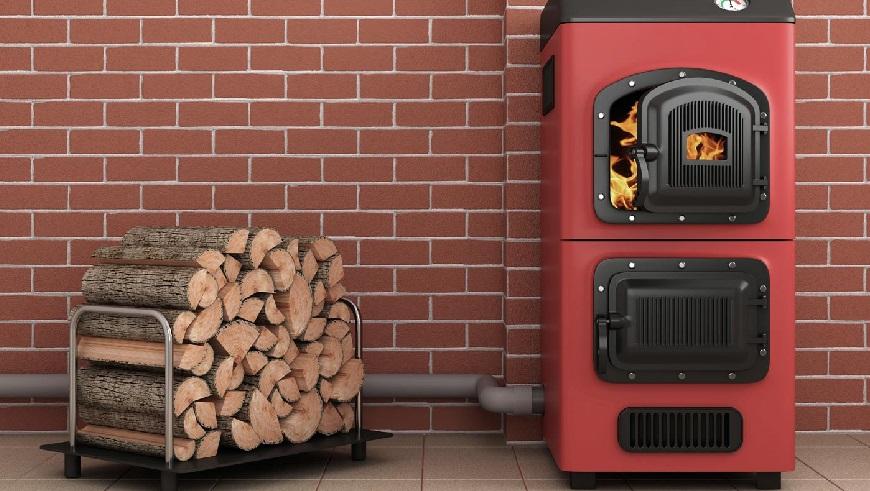Biomass Boiler Cost
Last updated 10th June, 2025
Wondering what does a biomass boiler cost?
If you're trying to save money in the long run and have considered a biomass boiler but unsure of the costs. You've come to the right place. From a domestic biomass boiler to biomass installers near me. We cover it all in this biomass boiler cost guide!
Let's begin!!

Table of Contents
How Much is a Biomass Boiler?
In the UK small manually fed log biomass boilers cost from around £4,000 (including labour costs), whereas larger manual systems can cost as much as £10,000. Automatic pellet fed boilers start from around £9,000 for a small home, but larger capacity systems will cost as much as £21,000.
The cost of biomass boilers can vary considerably in the UK, but the reason they are so popular is they are still cheaper than other traditional heating systems due to the grants available under the Renewable Heat Incentive.
The average biomass boiler specialist will usually charge around £200 per day in labour which will generally be factored into the overall price.
The job of installing a new biomass boiler will typically take around 2 to 4 days to complete and will depend on the level of automation, the size of biomass boiler and the ease of installation.
Below are some estimated costs to hire a specialist heating engineer to install a biomass boiler:
| Biomass Boiler Type/Size | Avg. Cost | Duration |
|---|---|---|
| Small manual fed log boiler supply and installation | £4,000 | 2-3 days |
| Large manual system supply and installation | £10,000 | 2-3 days |
| Small automatic pellet fed biomass boiler supply and installation | £9,000 | 2-4 days |
| Large automatic fed biomass boiler supply and installation | £20,000 | 2-4 days |
Biomass Boilers Cost Breakdown Calculator
Individual costs of installing a small manual biomass boiler - Total Cost: £4000
Materials
£2600
Tradesmen
£1200
Waste Removal
£200
Additional Biomass Boiler Installation Costs
The main biomass boiler cost after paying out for the initial cost of the boiler installation itself, will be purchasing fuel to burn in order to heat your property.
This will, of course, vary from one person to the next and depends on factors such as the size of your property and how long you need the boiler to be running on a day to day basis.
With this in mind, please use the following costs as a general estimate based on the average household usage.
| Fuel Type | Annual Fuel Cost | Annual Heating Demand |
|---|---|---|
| Wooden Logs | £1,250 | 10,000 kWh |
| Wooden Pellets | £840 | 20,000 kWh |
| Wooden Chips | £760 | 25,000 kWh |
Types of Biomass Boilers
With a variety of biomass boilers available to purchase, it's good to know which is right for you and to make an informed decision when purchasing. As such, here is our average biomass boiler cost guide followed by the pros and cons of each option.
| Biomass Boiler Type | Avg. Cost |
|---|---|
| Log-fed Biomass Boiler | £6,000 – £8,000 |
| Plane Grate Biomass Boiler | £5,000 – £8,000 |
| Stoker Burner Biomass Boiler | £4,000 – £6,000 |
| Batch Fired Biomass Boiler | £3,000 – £7,000 |
| Moving Grate Biomass Boiler | £12,000 – £14,000 |
Log-fed Biomass Boilers
Ideal for those with a regular supply of firewood, this boiler system requires the manual loading of the wood to keep going.
Pros
- ✔ Cheaper initial cost than an automated system
- ✔ Cost-effective option compared to other boilers
- ✔ Well-suited to large households
Cons
- ✖ Requires manual loading of logs
- ✖ Time-consuming process
- ✖ Need for regular supply
Plane Grate Boilers
Compact boiler system suited for dry, high-quality fuels when space is limited.
Pros
- ✔ Compact enough for small spaces
- ✔ More affordable than a moving grate boiler
- ✔ Energy-efficient when using premium fuels
Cons
- ✖ Operates with high-end, expensive fuel
- ✖ Requires regular manual loading
- ✖ Fuel type usage is limited
Stoker Burner Boilers
Adaptable boiler that's easy to operate and ideal for small spaces.
Pros
- ✔ Easy to use compared with alternatives
- ✔ Affordable installation costs
- ✔ Practical to fit in small spaces
Cons
- ✖ Runs on high-end dry fuel
- ✖ Small combustion chamber
- ✖ Limited fuel options
Batch Fired Boilers
This entry-level boiler is ideal for those looking for a low-cost option.
Pros
- ✔ Lowest boiler cost for installation
- ✔ Burns fuel in large batches
- ✔ Simple design concept
Cons
- ✖ Requires manual loading
- ✖ Less energy-efficient than other boiler options
- ✖ Potentially high fuel cost due to volume
Moving Grate Boilers
High-end, efficient system designed for large-scale use, runs off wetter fuels than other options.
Pros
- ✔ Efficient with high heat output
- ✔ Mixes fuel mechanically for better combustion
- ✔ Can handle fuels with higher moisture content
Cons
- ✖ More expensive to install than other options
- ✖ Boiler installation requires a larger space
- ✖ Complex setup with higher maintenance costs
Incentives For Installing a Biomass Boiler
Aside from government incentives and schemes, boiler installers recommend biomass boilers as they are considered carbon-neutral, and can help reduce the reliance on fossil fuels. Not to mention they offer a better financial return compared to the costs of electric, LPG or oil-based boilers.
There are, however, other incentives for installing a biomass boiler:
Boiler Upgrade Scheme (BUS)
Introduced in 2022, the Boiler Upgrade Scheme is a grant introduced to help purchase a biomass boiler, however your property must meet certain criteria that includes the following:
- Rural areas only - The property must be in a rural area and not connected to the gas grid.
- Type of property - Not available for new builds, social housing, or properties having previously received government funding
- Official certifaction - A valid Energy Performance Certificate (EPC) and Emissions Certificate to confirm compliance
- Installer Certification - The installation must be carried out by an installer certified by the Microgeneration Certification Scheme (MCS)
Renewable Heat Incentive
Launched at the end of 2011 and since closed to new applicants as of 2022, the previous government-led innitiative for installing a biomass boiler was the Renewable Heat Incentive (RHI).
The RHI scheme was introduced to promote the use of renewable heat technologies, such as biomass boilers, by providing payments to those generating and using renewable heat sources.
While there have been several changes and proposals to this incentive, it's worth noting the following points:
- Assignment of Rights - Proposed measure allowing homeowners to assign their RHI payments to a 3rd party company financing renewable heating.
- Poorer Households - This allows for those in fuel poverty to install renewable biomass heating systems in their own home.
- No Heat Demand Limit - Previously, there was no limit for RHI payments, allowing larger properties to claim significant financial returns.
- Heat Demand Cap - A heat demand limit of 25,000 kWh per year for biomass systems was proposed to limit excessive RHI claims.
Am I suitable for a biomass boiler?
Biomass boilers need more room compared to a regular gas or oil fired boiler, but are great for those not connected to mains gas who have space for fuel storage.
Although biomass boilers are growing in popularity (no doubt at least due to the Renewable Heat Incentive), they currently only account for around 0.5% of all boiler sales in the UK. This suggests that many homeowners in the UK still choose to have conventional gas and oil boilers despite the environmental benefits and energy bill savings they offer.
The prices quoted vary depending on the manufacturer, size and level of automation, with automatically fed boilers being more expensive than manually fed systems. Running costs also need to be factored in.










